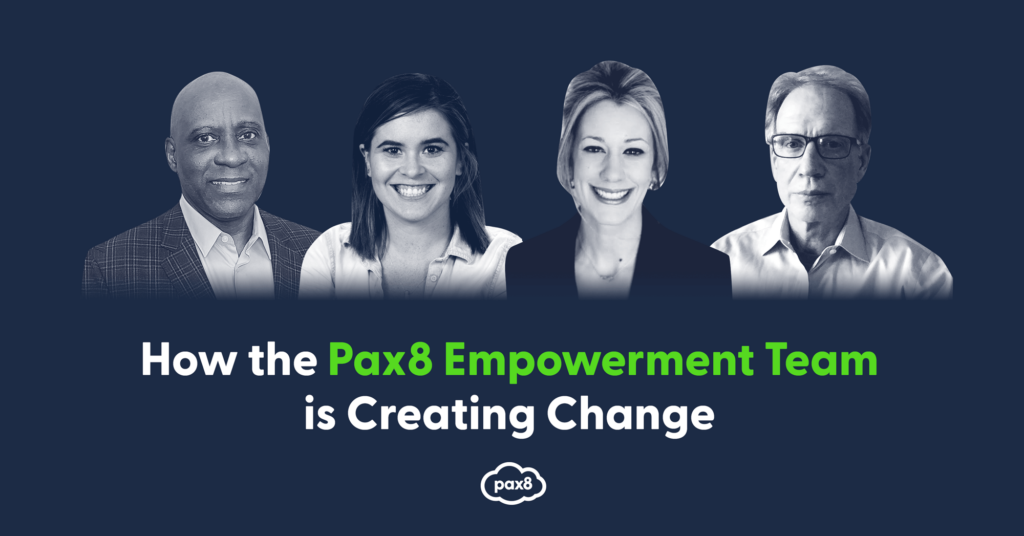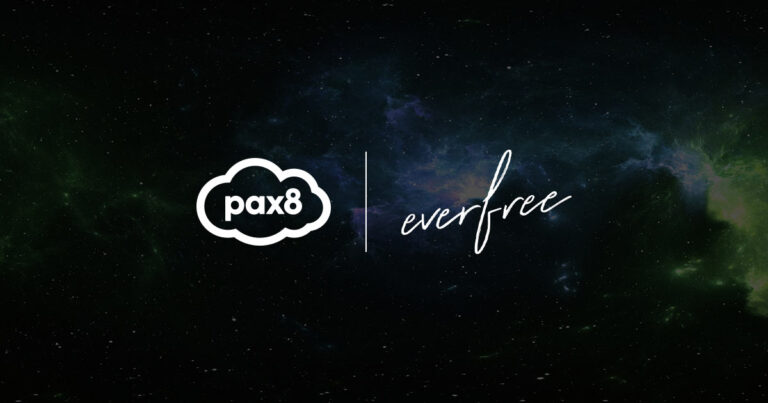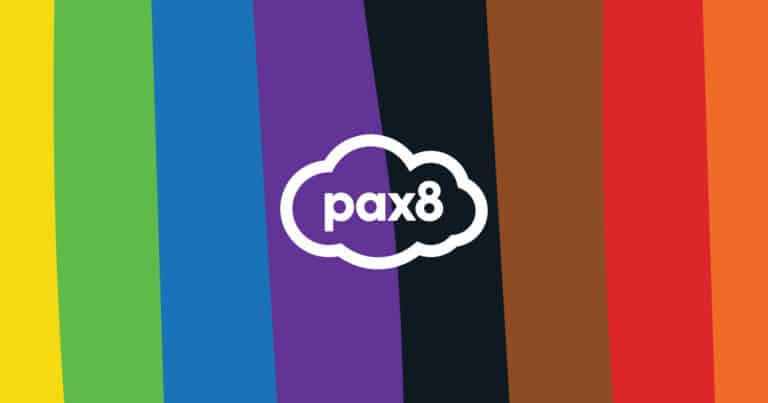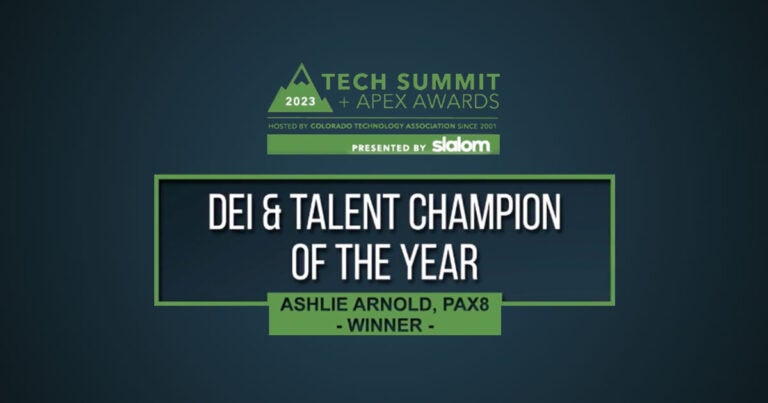A Q&A with the Pax8 Empowerment Team.
When it comes to a mission as critical as diversity, equity, and inclusion (DEI), it’s easy for companies to talk a big talk – but to effect real change, they need to put programs into action.
Thanks to committed leadership and a dedicated department accountable for measurable goals and outcomes, Pax8 is doing just that. Pax8 created the first Empowerment position in January 2020 and has continued to build out the team with specialized roles related to recruiting, hiring, education, rural empowerment, and data research.
The mission of the Empowerment team is to build an inclusive culture that encourages, supports, and celebrates diversity. We want our culture to inspire positive change and achievement in our people and our communities while ensuring that every employee feels like they genuinely belong at Pax8.
But those aren’t just words on paper. In just one year, the Empowerment team has:
– Changed Pax8 recruiting and hiring processes
– Hosted internal education events
– Launched unconscious bias management training
– Established a successful rural empowerment pilot program
– Initiated employee demographic goals and reporting
And that’s just the beginning.
We recently interviewed our Empowerment team to learn what they’ve achieved, what they’ve got planned, and how they envision the future of DEI at Pax8.
To start off, why are you passionate about DEI?
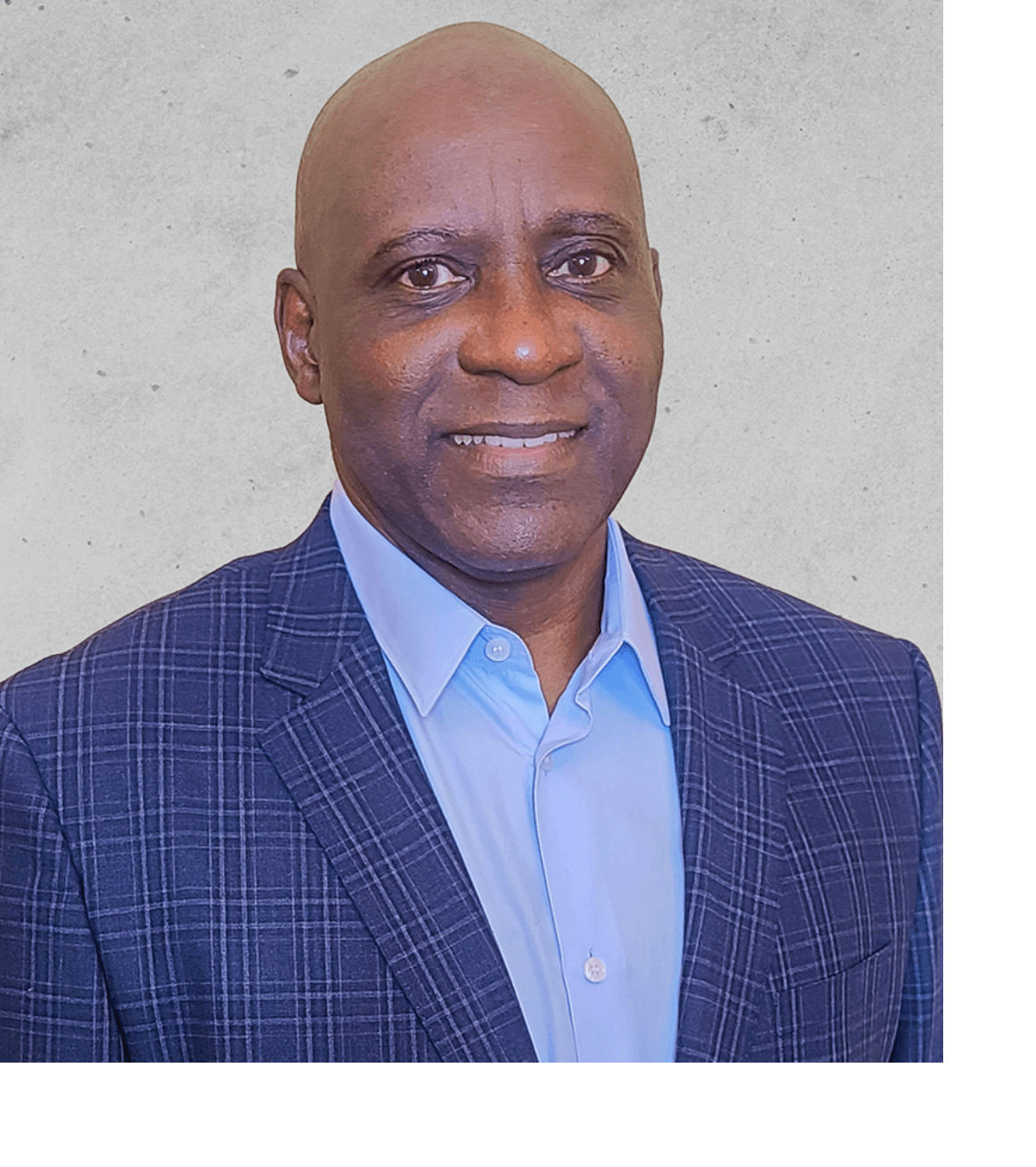 Cleve Lewis, VP of Empowerment Programs: I’ve been in technology for 30 years and along the way, I didn’t see very many people of color – especially in the positions that I’ve had over the years in executive sales management. I’ve had a number of roles at Pax8 that led me here to the Empowerment team, but I never thought I’d end up working in this field! I’m learning as I go, but I have seen firsthand how important DEI is to Pax8 and I’m passionate about our mission to be a thought leader in DEI and rural empowerment. I’m very happy to be leading this department and I think that we’re going to do some valuable, meaningful things moving forward.
Cleve Lewis, VP of Empowerment Programs: I’ve been in technology for 30 years and along the way, I didn’t see very many people of color – especially in the positions that I’ve had over the years in executive sales management. I’ve had a number of roles at Pax8 that led me here to the Empowerment team, but I never thought I’d end up working in this field! I’m learning as I go, but I have seen firsthand how important DEI is to Pax8 and I’m passionate about our mission to be a thought leader in DEI and rural empowerment. I’m very happy to be leading this department and I think that we’re going to do some valuable, meaningful things moving forward.
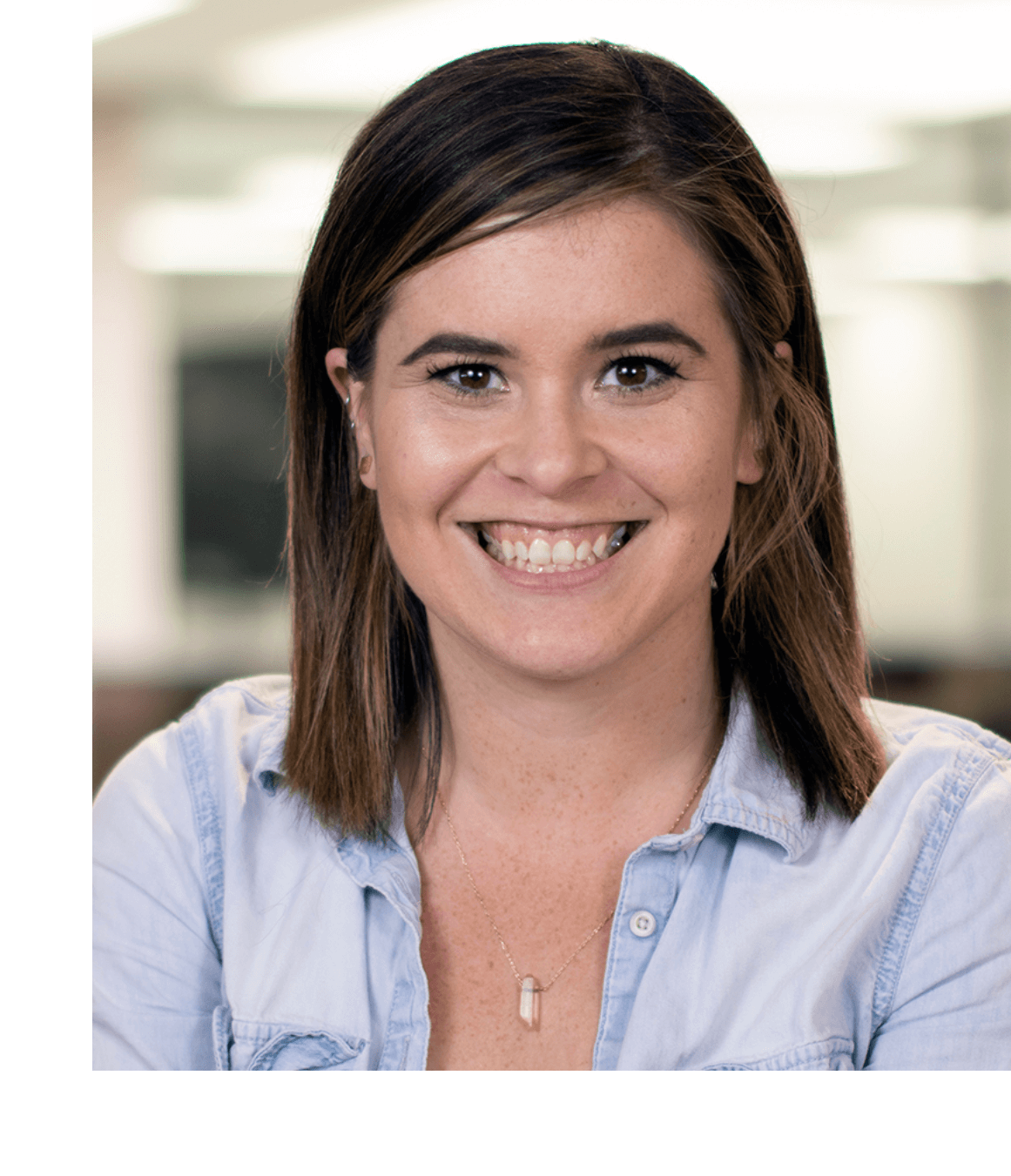 Rachel Parks, Manager of DEI Programs: I started my career in recruiting, working at a high-volume, high-turnover staffing agency for about a year and a half. That was my initial look at how the recruiting process is truly not set up for the benefit of the candidate – and if it’s not benefiting the candidate, how is it really going to benefit the business? Later, I worked at financial tech company with little diversity where it was clear that managers were allowed to create a mold and only hire people who fit that mold.
Rachel Parks, Manager of DEI Programs: I started my career in recruiting, working at a high-volume, high-turnover staffing agency for about a year and a half. That was my initial look at how the recruiting process is truly not set up for the benefit of the candidate – and if it’s not benefiting the candidate, how is it really going to benefit the business? Later, I worked at financial tech company with little diversity where it was clear that managers were allowed to create a mold and only hire people who fit that mold.
So, when I got to Pax8 I was very determined to tackle the recruiting process from a lot of different angles. I wanted to see the interview and recruiting process change and be accessible for everyone. And it’s not just about bringing in diverse talent— you also have to help them thrive and create an equitable chance at succeeding. It’s been amazing to have Pax8 leadership really embrace DEI and it keeps me passionate about disrupting the hiring process and trying to disrupt the mold of what the tech industry looks like from the outside.
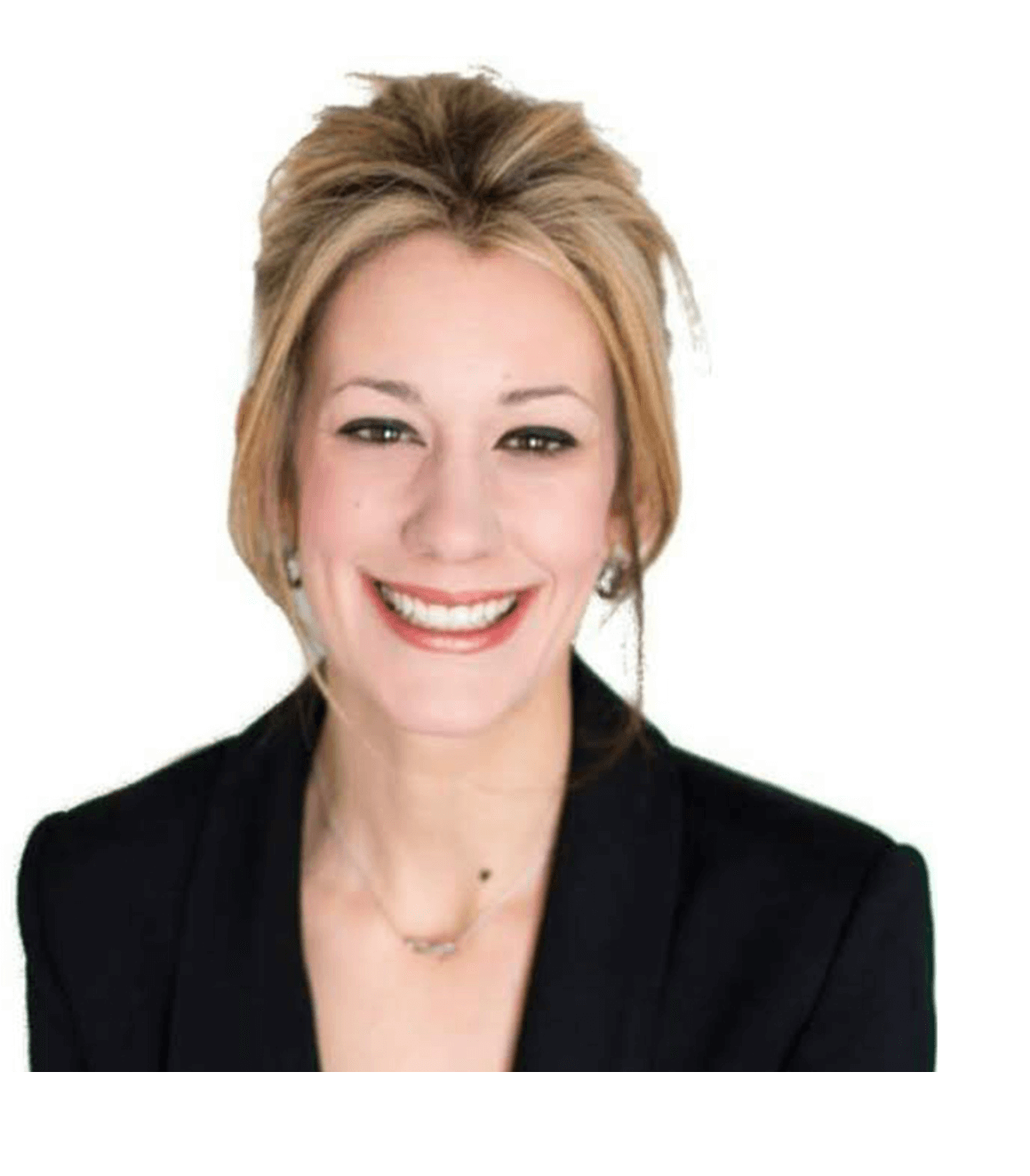 Ashlie Arnold, Rural Empowerment Programs Manager: My background is in big data, but in the teams that I worked with in the past, there was a lack of diversity not only by age, but also by gender. I also always felt that tech positions across the country were limited to more urbanized locations. As someone living in a rural location, I became very passionate about bringing technology and knowledge worker jobs to rural America. I did that in a volunteer capacity with the Upper Arkansas Region 13 Technology Partnership (now the South Central Technology Partnership) here in Colorado, and now continue that work with Pax8 on bringing tech positions to rural America to diversify the workforce.
Ashlie Arnold, Rural Empowerment Programs Manager: My background is in big data, but in the teams that I worked with in the past, there was a lack of diversity not only by age, but also by gender. I also always felt that tech positions across the country were limited to more urbanized locations. As someone living in a rural location, I became very passionate about bringing technology and knowledge worker jobs to rural America. I did that in a volunteer capacity with the Upper Arkansas Region 13 Technology Partnership (now the South Central Technology Partnership) here in Colorado, and now continue that work with Pax8 on bringing tech positions to rural America to diversify the workforce.
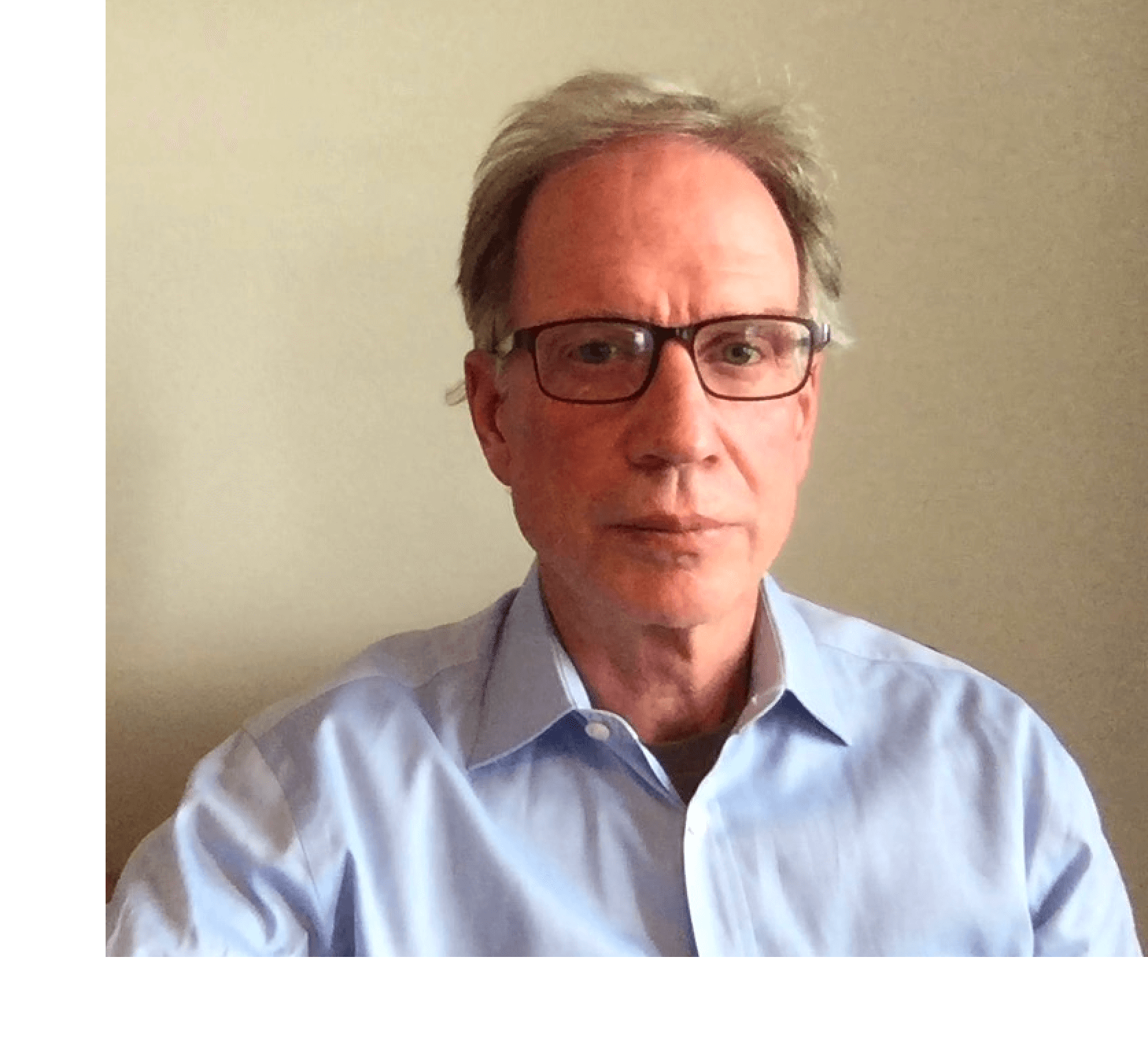 Bob Beazley, Research Analyst: Over the years I’ve worked in more than 50 different countries on five different continents, which has immersed me in diversity and different cultures. Through these experiences, I have come to appreciate diversity as one of the most important elements in terms of developing one’s worldview, being open to outside ideas, and being able to see things from a different point of view. The tech industry is a new adventure and challenge, and I bring that awareness of the importance of diversity to this opportunity. Having DEI as a pillar of Pax8 is one of the most important aspects of being a company that wants to be open minded and creative – you need to have those different perspectives in your employees.
Bob Beazley, Research Analyst: Over the years I’ve worked in more than 50 different countries on five different continents, which has immersed me in diversity and different cultures. Through these experiences, I have come to appreciate diversity as one of the most important elements in terms of developing one’s worldview, being open to outside ideas, and being able to see things from a different point of view. The tech industry is a new adventure and challenge, and I bring that awareness of the importance of diversity to this opportunity. Having DEI as a pillar of Pax8 is one of the most important aspects of being a company that wants to be open minded and creative – you need to have those different perspectives in your employees.
What is the background and history of DEI at Pax8?
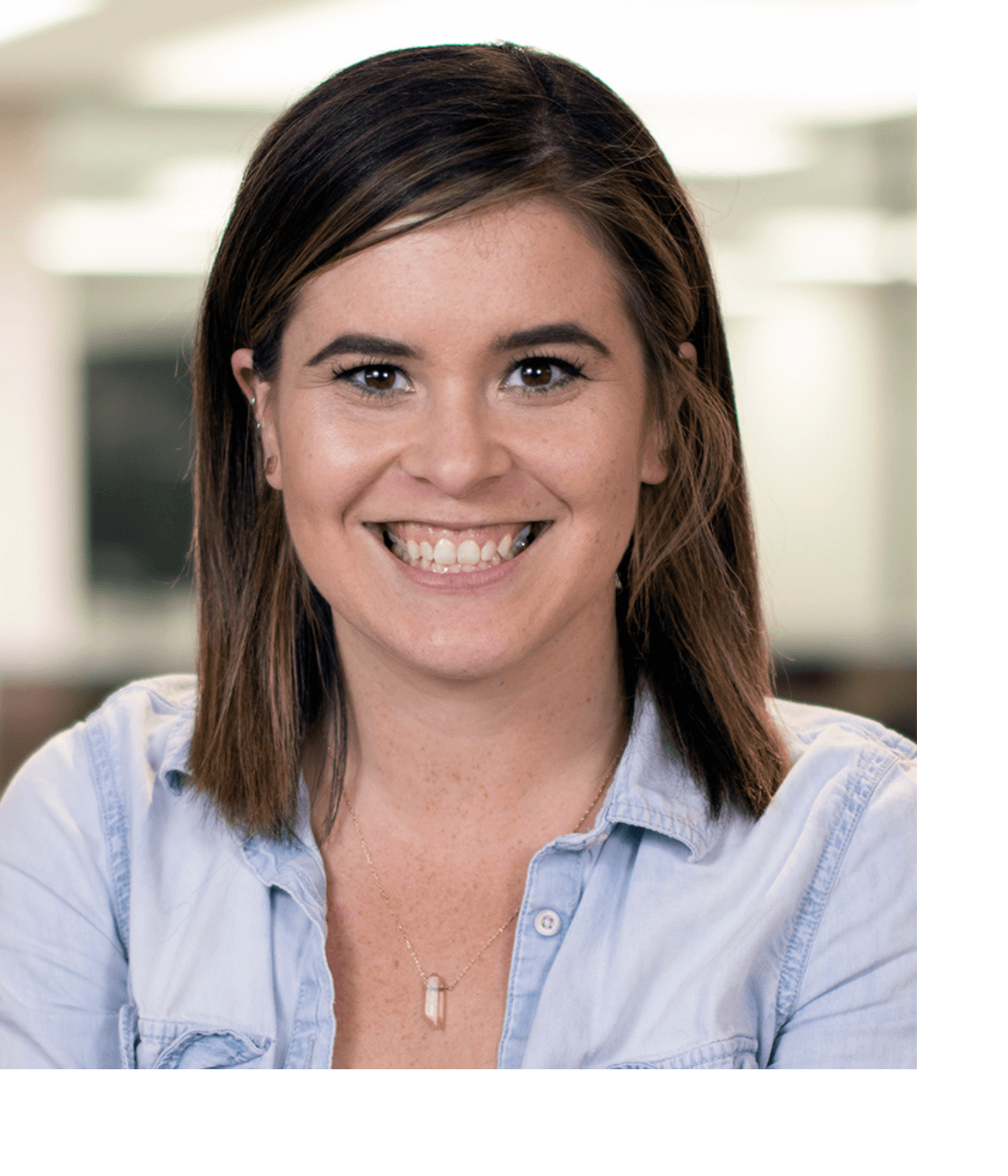 Rachel Parks, Manager of DEI Programs: When I got started here at Pax8, I would not shut up about the importance of DEI in recruiting and setting up ways to educate our employees about people that are different from them. So, we formed a D&I Committee – it was just a few of us piled in the boardroom talking about what we could do. When Cleve came on as the VP of Empowerment around that time, it became clear that the goals and initiatives we were planning through the D&I Committee needed full-time attention. That’s when I moved into my current role to help create change within the workplace and combat hiring bias.
Rachel Parks, Manager of DEI Programs: When I got started here at Pax8, I would not shut up about the importance of DEI in recruiting and setting up ways to educate our employees about people that are different from them. So, we formed a D&I Committee – it was just a few of us piled in the boardroom talking about what we could do. When Cleve came on as the VP of Empowerment around that time, it became clear that the goals and initiatives we were planning through the D&I Committee needed full-time attention. That’s when I moved into my current role to help create change within the workplace and combat hiring bias.
We knew that this was going to make the company better and allow the people that worked here to build stronger teams. Then, the pandemic and social injustices happening around the country last summer really fueled our department to start getting work done and gave us an opportunity and platform to stand up trainings and have important conversations. As we’ve continued to progress, we’ve gained more momentum to get to the point where we can be thought leaders and change leaders in the industry.
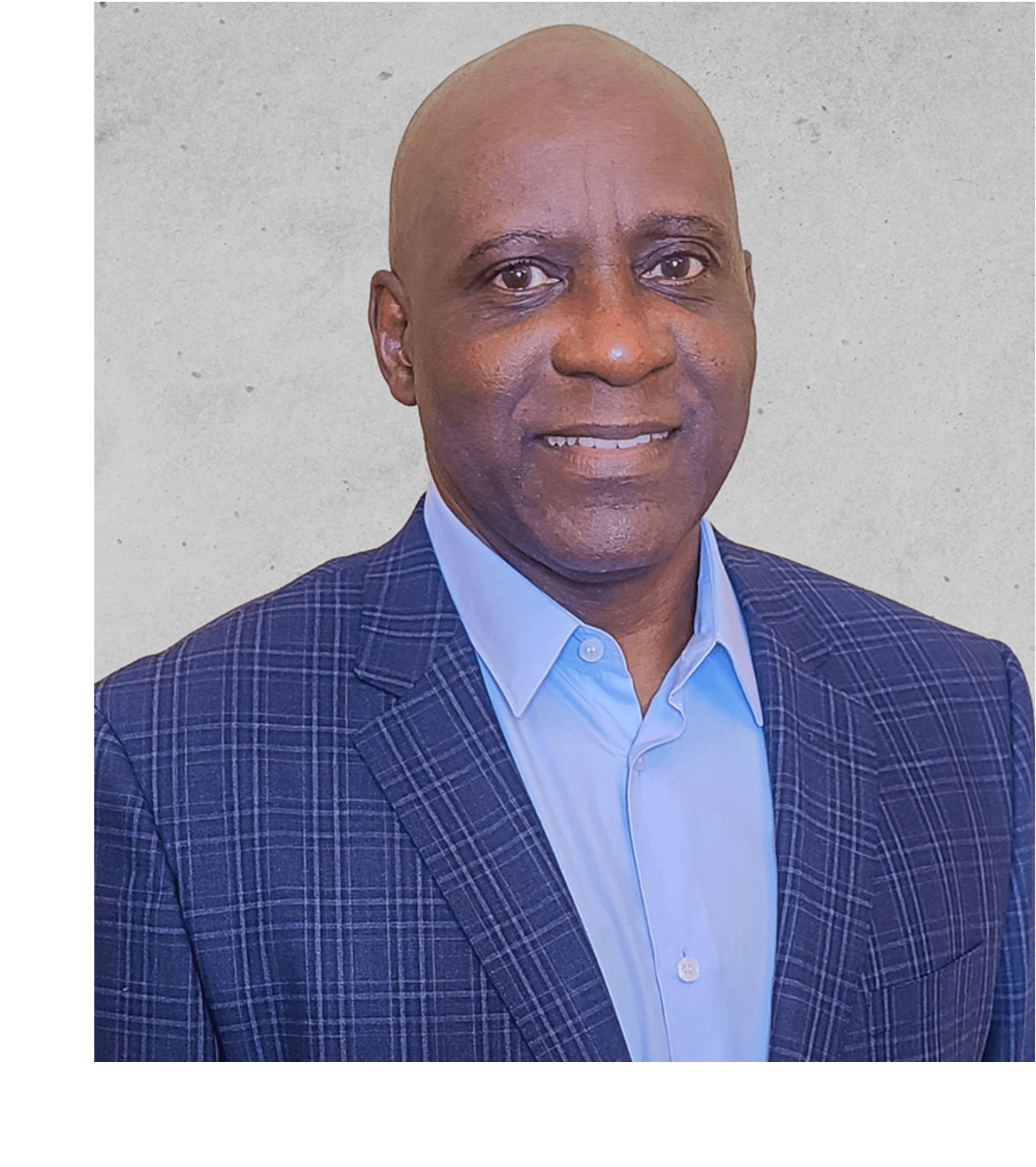 Cleve Lewis, VP of Empowerment Programs: A lot of companies out there have DEI initiatives, but do they really mean it? Do they put plans into action? When I first talked with Susan [Mitnick] and John [Street] about this department, we weren’t sure where it was going to go. It was a new area for me – I didn’t have a background in DEI or HR, I was a sales guy for 30 years! But I knew we had a critical mission for the company.
Cleve Lewis, VP of Empowerment Programs: A lot of companies out there have DEI initiatives, but do they really mean it? Do they put plans into action? When I first talked with Susan [Mitnick] and John [Street] about this department, we weren’t sure where it was going to go. It was a new area for me – I didn’t have a background in DEI or HR, I was a sales guy for 30 years! But I knew we had a critical mission for the company.
Then the George Floyd incident last summer led us to hold our first employee town hall meeting which I felt was a huge success. As the summer went on, we started to engage with external entities which helped us gain momentum as a department. We’ve made some very critical connections with nonprofits and with companies like Microsoft. And now we have a very clear vision moving forward for the DEI goals we want to achieve and how we’re going to get there.
Why is DEI important for companies to prioritize and how does it benefit them?
 Rachel Parks, Manager of DEI Programs: Data shows that organizations who focus on having intentional recruiting practices and mentorship programs are more successful, but you have to give people opportunities to develop and work their way up in their career and feel that they belong.
Rachel Parks, Manager of DEI Programs: Data shows that organizations who focus on having intentional recruiting practices and mentorship programs are more successful, but you have to give people opportunities to develop and work their way up in their career and feel that they belong.
Focusing on diversity, equity, and inclusion (and not just one or the other!) benefits the culture as whole. When you give equal opportunity to all employees to emerge into leadership positions, you gain differences of perspectives and opinions on a level where those voices can be heard, and change can really start to happen.
As Pax8 starts to be intentional about DEI from the ground up with recruiting, we can start to see people grow into strong leadership roles and start seeing more representation at the executive level. Pax8 is embracing DEI in a way that’s different from the “company norm” and as our employees recognize and appreciate this, our partners and vendors will begin to see that this is another way Pax8 differentiates ourselves from the pack.
What are the main DEI program initiatives in 2021 and how do you plan to achieve them?
 Rachel Parks, Manager of DEI Programs: Our big three initiatives are diversity recruitment, education and awareness, and social impact. We want to get our representation of women up to 30% and we want to have at least a 5% representation of people of color. To improve representation among the employee population, we are using the partnerships that we have with Microsoft Career Connector, skilling nonprofits, and working with Canvas to host events.
Rachel Parks, Manager of DEI Programs: Our big three initiatives are diversity recruitment, education and awareness, and social impact. We want to get our representation of women up to 30% and we want to have at least a 5% representation of people of color. To improve representation among the employee population, we are using the partnerships that we have with Microsoft Career Connector, skilling nonprofits, and working with Canvas to host events.
For education engagement, we work with the Pax8 DEI Employee Resource Group (formerly the D&I Committee) to create employee events like our town halls. These provide opportunities for Pax8 employees to hear each other’s stories, learn facts, and get exposed to new perspectives.
 Cleve Lewis, VP of Empowerment Programs: And we’re just at the starting line! I think after we get through this year, we’ll have a much better baseline so that as we start to look at the metrics we want to achieve next year, we should have a better feel for what we can accomplish — and we’ll set some lofty goals in 2022!
Cleve Lewis, VP of Empowerment Programs: And we’re just at the starting line! I think after we get through this year, we’ll have a much better baseline so that as we start to look at the metrics we want to achieve next year, we should have a better feel for what we can accomplish — and we’ll set some lofty goals in 2022!
What role does Pax8 leadership play in driving DEI at the company?
 Cleve Lewis, VP of Empowerment Programs: DEI at Pax8 is here due to the support of leadership. You can never take on these types of initiatives unless you have support from leadership at the top, period. John Street is a visionary and just like how Pax8 is changing the game when it comes to the modern IT partner experience, now Pax8 is taking an innovative approach to becoming a better, stronger, more diverse employer.
Cleve Lewis, VP of Empowerment Programs: DEI at Pax8 is here due to the support of leadership. You can never take on these types of initiatives unless you have support from leadership at the top, period. John Street is a visionary and just like how Pax8 is changing the game when it comes to the modern IT partner experience, now Pax8 is taking an innovative approach to becoming a better, stronger, more diverse employer.
What is Pax8 doing to develop thought leadership in this area?
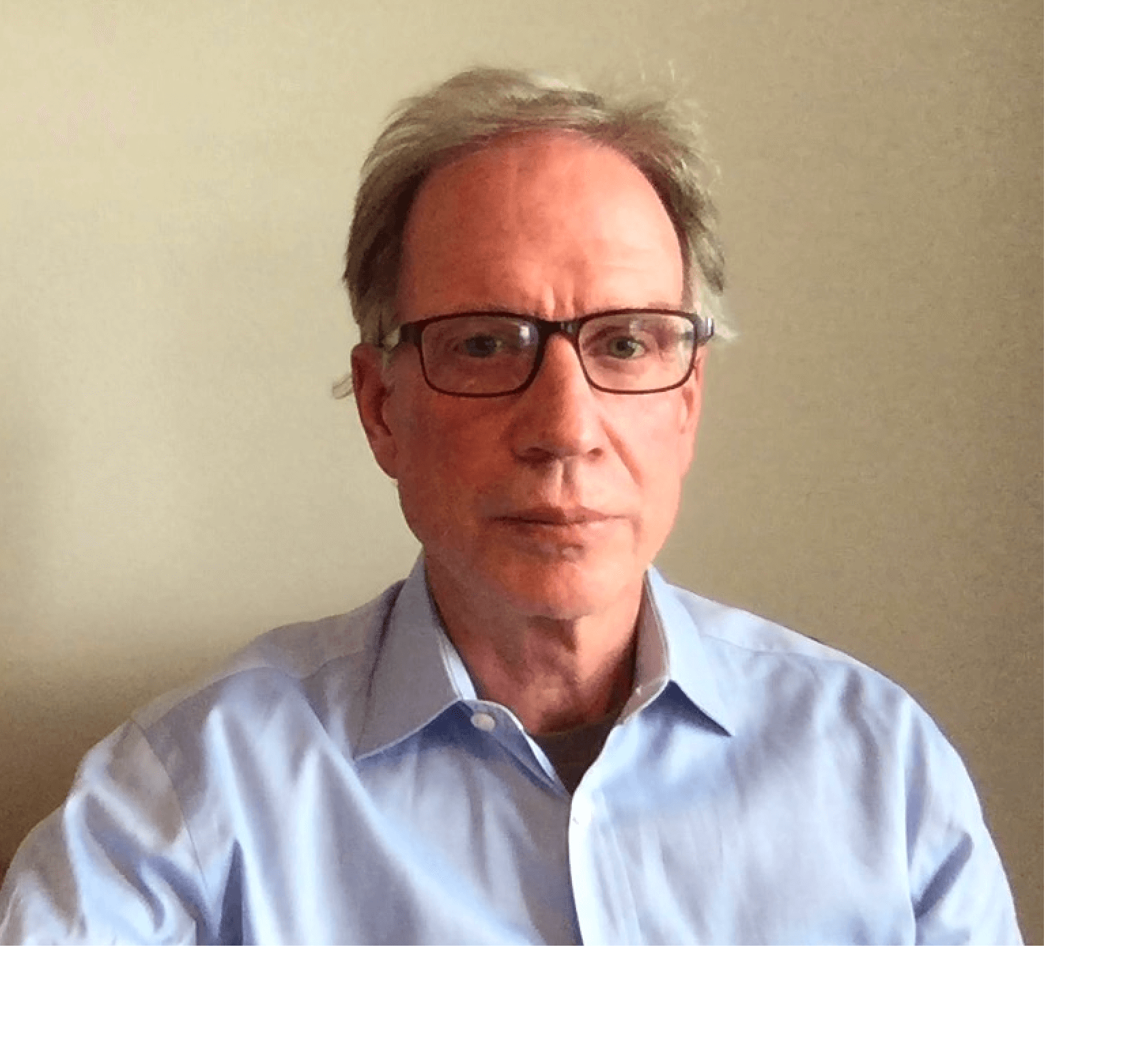 Bob Beazley, Research Analyst: My role is a research analyst for emerging empowerment programs. I use my research skills to conduct community readiness assessments, looking at areas in Colorado as well nationally and internationally that may be a good fit for our expanding footprint. I also explore some of our CEO John Street’s innovative ideas around DEI, the future of work, and company culture.
Bob Beazley, Research Analyst: My role is a research analyst for emerging empowerment programs. I use my research skills to conduct community readiness assessments, looking at areas in Colorado as well nationally and internationally that may be a good fit for our expanding footprint. I also explore some of our CEO John Street’s innovative ideas around DEI, the future of work, and company culture.
One evolving project is an employee cultural exchange program where Pax8 employees from different states or countries could come to our home turf here in Colorado to do their job and experience what it’s like to live here, while employees from the US could go to one of our international offices such as in the UK.
I am also looking into how Pax8 can become more involved with thought leaders in areas such as the future of work, future of learning, future of education, artificial intelligence, emerging technologies, and neurobiology and neuroscience. For example, when people are highly focused, they often function within what is called the “flow state”. The neurological changes that take place result in greater creativity and increased efficiency and productivity. As a consequence, people in a flow state find they love what they are doing and are really invested. At the end of the day, they feel very fulfilled in their job. How can we tap into that? What does the research say? The hope is to eventually have a think tank-type conference around this kind of diversity of thought.
What tools and partnerships is the DEI program utilizing to make recruiting, hiring, and promoting more diverse?
 Rachel Parks, Manager of DEI Programs: We’ve invested in a job board called Canvas that specializes in hosting events and getting job postings out for people in underrepresented communities. We’ve been working with them to establish a recruiting push to get more mid-level and even senior-level talent. This is a way for us to not only support the needs of different departments within the organization, but also put people in higher level positions that will have an opportunity to grow into leadership roles more quickly. And, in fact, Canvas awarded Pax8 with a “Remarkable Achievements in Diversity Hiring” award this June!
Rachel Parks, Manager of DEI Programs: We’ve invested in a job board called Canvas that specializes in hosting events and getting job postings out for people in underrepresented communities. We’ve been working with them to establish a recruiting push to get more mid-level and even senior-level talent. This is a way for us to not only support the needs of different departments within the organization, but also put people in higher level positions that will have an opportunity to grow into leadership roles more quickly. And, in fact, Canvas awarded Pax8 with a “Remarkable Achievements in Diversity Hiring” award this June!
 Cleve Lewis, VP of Empowerment Programs: We’re also partnering with the Microsoft Connector, which is a new program for Microsoft to skill up tech talent and provide a million jobs worldwide. We were one of the first to engage with the Microsoft Connector site and now we’re posting jobs there. And TechBridge is a nonprofit we’re working with that provides skilling initiatives to try to get people to move into tech.
Cleve Lewis, VP of Empowerment Programs: We’re also partnering with the Microsoft Connector, which is a new program for Microsoft to skill up tech talent and provide a million jobs worldwide. We were one of the first to engage with the Microsoft Connector site and now we’re posting jobs there. And TechBridge is a nonprofit we’re working with that provides skilling initiatives to try to get people to move into tech.
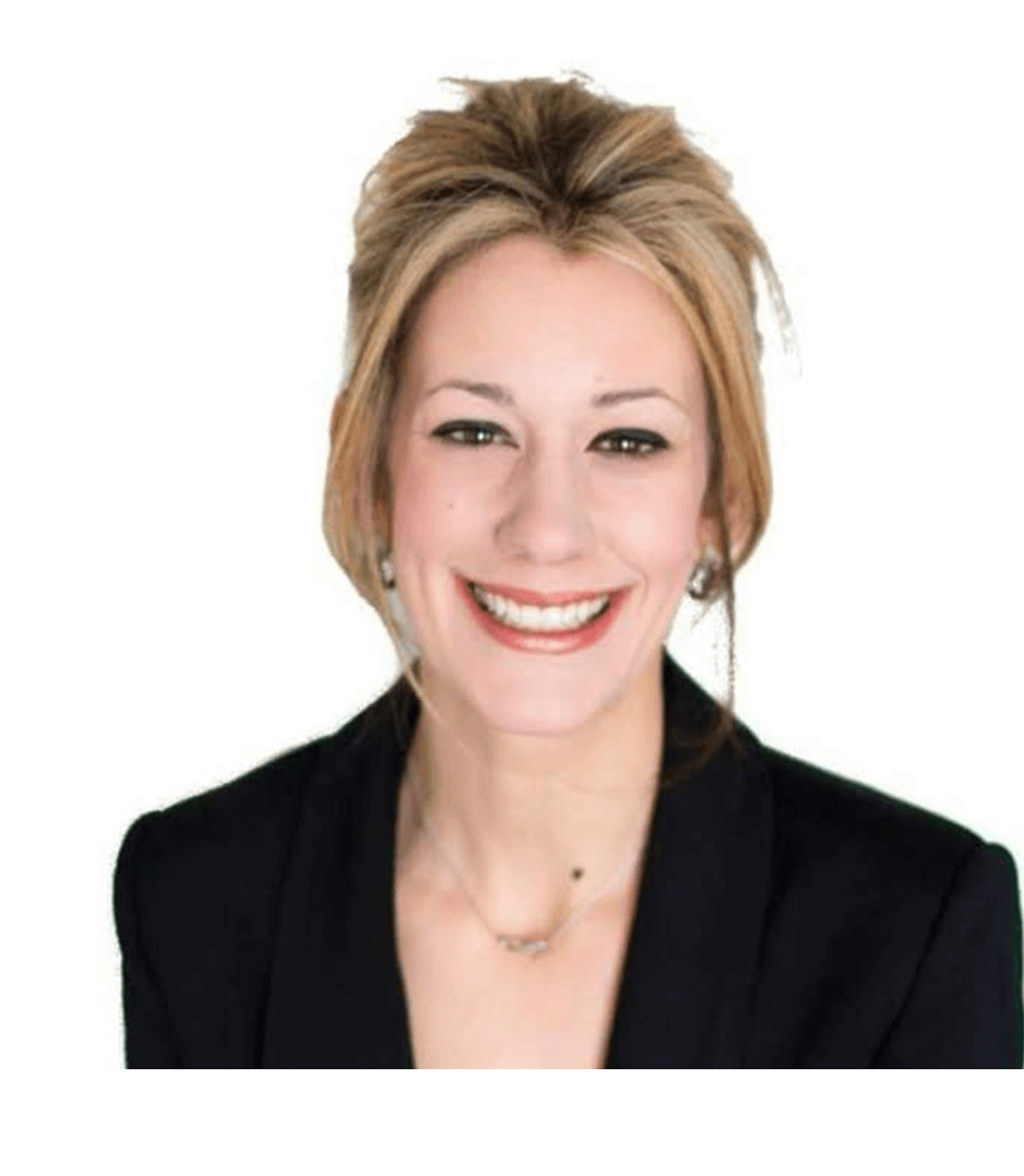 Ashlie Arnold, Rural Empowerment Programs Manager: On the rural side, we are working with FEDC TechStart, the Center of Rural Innovation (CORI), the Economic Development Council of Colorado, the Rural Workforce Consortium of the State of Colorado as well as with the state of Colorado Office of Economic Development and International Trade and Colorado Office of Future of Work.
Ashlie Arnold, Rural Empowerment Programs Manager: On the rural side, we are working with FEDC TechStart, the Center of Rural Innovation (CORI), the Economic Development Council of Colorado, the Rural Workforce Consortium of the State of Colorado as well as with the state of Colorado Office of Economic Development and International Trade and Colorado Office of Future of Work.
Why is it so important for tech companies like Pax8 to connect with rural communities?
 Ashlie Arnold, Rural Empowerment Programs Manager: It’s about diversifying the talent pipeline geographically, and also about bringing opportunity and accessibility to underserved communities. That’s the main driver, but also bringing outside dollars into the community can really do a lot for economic development and for future programs for upskilling the talent in the region for years to come.
Ashlie Arnold, Rural Empowerment Programs Manager: It’s about diversifying the talent pipeline geographically, and also about bringing opportunity and accessibility to underserved communities. That’s the main driver, but also bringing outside dollars into the community can really do a lot for economic development and for future programs for upskilling the talent in the region for years to come.
Bringing the tech sector to an underrepresented community is really translating to economies of scale in the feeders and school systems. More broadly, our vision is helping to revitalize rural America because with the new movement to remote work, we are able to reactivate the rural audience and bring opportunity. That allows us in turn to begin community mentorship programs, and we’re starting to move the needle in that respect and see a bit of progress where we can provide skilling and stability in these communities.
How is the Rural Empowerment Program progressing? Any new achievements or news to share?
 Ashlie Arnold, Rural Empowerment Programs Manager: Right now, our Rural Empowerment Program represents six cities across rural Colorado and includes nine different departments at Pax8. We’ve really been able to activate and diversify the talent pipeline in our rural program – we’re getting anywhere from an age group of 20 to 29, all the way up to 60 to 69 and we’re sitting at 10% veteran, 12% Asian, 10% African American, and 30% female.
Ashlie Arnold, Rural Empowerment Programs Manager: Right now, our Rural Empowerment Program represents six cities across rural Colorado and includes nine different departments at Pax8. We’ve really been able to activate and diversify the talent pipeline in our rural program – we’re getting anywhere from an age group of 20 to 29, all the way up to 60 to 69 and we’re sitting at 10% veteran, 12% Asian, 10% African American, and 30% female.
We are also in the process of building out an office at the Emergent Campus in Fremont County. When the rural program began, we started a partnership with the South Central Technology Partnership (formerly Upper Arkansas Region 13 Technology Partnership) and were able to rent 12 coworking seats at the Emergent Campus. Those seats are now completely full, so now we’re starting to build our own Pax8-branded space on the second floor. Just recently, our Chief Financial Officer, Michael Lipfield, spoke at the Governor Polis’s Press Conference regarding our LONE program and our rural empowerment efforts.
 Cleve Lewis, VP of Empowerment Programs: A lot of companies have been very interested in what Pax8 is doing with our Rural Empowerment Program – people seem to feel that we’re on the right track.
Cleve Lewis, VP of Empowerment Programs: A lot of companies have been very interested in what Pax8 is doing with our Rural Empowerment Program – people seem to feel that we’re on the right track.
What makes Pax8 stand out when it comes to our DEI and rural initiatives?
 Bob Beazley, Research Analyst: Through our conversations with different thought leaders, the feedback that we are getting is really encouraging! We hear, “I know a lot of people talk about this, but you are one of the few companies I see who are implementing it. You’re actually doing what you say you are going to do.” This is coming from very high-profile people who are in the know about what is happening in terms of rural remote work, rural economic development, company culture, peak performance, and some of the other areas that we are involved in. So, it is really encouraging to hear their enthusiasm and that we are becoming leaders in the field.
Bob Beazley, Research Analyst: Through our conversations with different thought leaders, the feedback that we are getting is really encouraging! We hear, “I know a lot of people talk about this, but you are one of the few companies I see who are implementing it. You’re actually doing what you say you are going to do.” This is coming from very high-profile people who are in the know about what is happening in terms of rural remote work, rural economic development, company culture, peak performance, and some of the other areas that we are involved in. So, it is really encouraging to hear their enthusiasm and that we are becoming leaders in the field.
More to Come.
The Pax8 mission is to not just redefine cloud distribution, but also what it means to be a top workplace. Our leadership and our team truly believe that diversity, equity, and inclusion are cornerstones of what makes a thriving, healthy, inclusive, creative company culture, due to bringing in a wider range of backgrounds, voices, and perspectives.
The Empowerment team has achieved a lot in one year, but they’re only just getting started. With the employee demographic benchmarks they’ve set, the initial success of the Rural Empowerment Program, and the in-depth research and analysis they’re doing to stay on the cutting edge of DEI, the Empowerment team has big plans ahead. Stay tuned!

